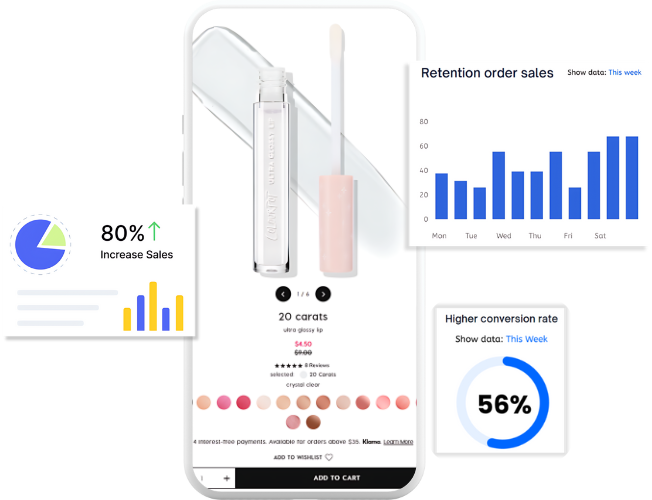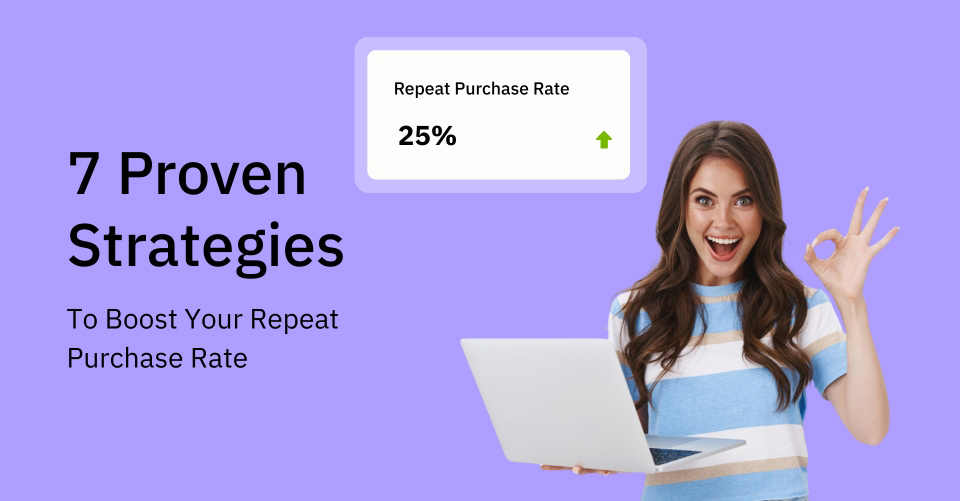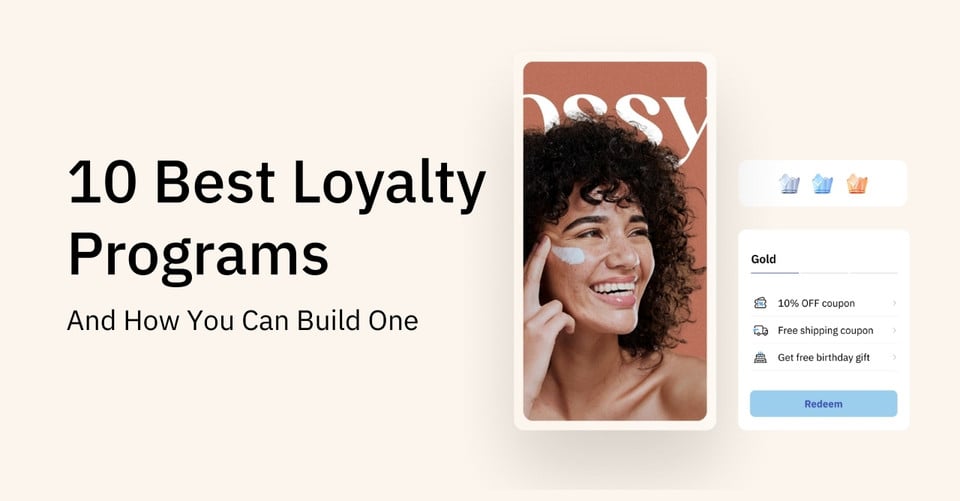Shopify, a comprehensive e-commerce platform, empowers individuals, creators, and enterprises to start, grow, and scale their online business. Such a platform quickly becomes one of the most popular all-in-one e-commerce solutions.
Shopify offers users various plans, such as Basic Shopify, Starter Shopify, Advanced Shopify, and Shopify Plus. Each plan comes with different features and costs, and merchants are advised to choose the one that best suits their business. They can always adjust their plan as their business evolves. Today, we look at how much Shopify Plus is.

Differences between Basic Shopify and Shopify Plus
Basic Shopify and Shopify Plus are two of the most commonly chosen plans. This section explains the differences between the two.
1. Target group
Basic Shopify and Shopify Plus target different groups. The former is mainly designed for beginners who want to dip their toes in the field of e-commerce. The latter, on the other hand, is more suitable for mature enterprises, which often conduct large-scale online business.
2. Pricing
The two plans also differ in pricing. The Basic Shopify plan costs $29 per month, and the fee is paid annually. The pricing of Shopify Plus starts at $2,300 per month. The cost difference seems significant, but the features of the Shopify Plus plan justify it.
3. Scalability and flexibility
As Basic Shopify is for beginners, it offers user-friendly functionalities and detailed guidance. It doesn’t require any coding knowledge. Shopify Plus, on the other hand, equips enterprises with more customization possibilities. For example, it allows users to control a store’s underlying code.
Is it worth upgrading to Shopify Plus?
Whether it is worthwhile to upgrade your plan to Shopify Plus depends on your business. If you are conducting a high-volume online business and are ready for a serious expansion, then Shopify Plus is your perfect choice. Here are a few factors to consider.
1. Business scale and growth
Shopify Plus is designed for large-scale businesses. If your business is growing rapidly and you are in need of a large platform for further expansion, then upgrading to Shopify Plus is a smart choice.
2. Customization and flexibility
Shopify Plus offers excellent customization and flexibility. Before upgrading to this plan, you can ask yourself whether you are already familiar with e-commerce platforms and want an advanced one that can handle complex integrations and high traffic while offering flexibility to design store structure and change the underlying code.
Shopify Plus also offers advanced features, like wholesale channels, multi-currency support, custom checkout, etc. However, the plan comes with higher costs. Therefore, it is recommended that merchants carefully weigh the costs and benefits to ensure the chosen plan aligns with the business.
How much does Shopify Plus cost?
The total costs of Shopify Plus consist of the base costs of a Shopify Plus license and some side costs. Let’s have a closer look at each cost.
1. The cost of website building
In terms of website design and building, Shopify Plus offers various templates. However, if you want your store to stand out among your competitors, then you have to build a tailor-made site or a heavily modified template. This means more customization and personalization; you need to find professionals to design and build the site for you.
Depending on your needs, the average cost of building a Shopify Plus site is from $60,000 to $200,000, based on the scale and complexity of the project. Larger online business enterprises with high-volume orders and complicated needs will spend considerably more during the process of designing and building a website for their Shopify Plus plan.
2. The cost of Shopify Plus license
As mentioned earlier, the Shopify Plus annual licensing fee starts at $2,300 per month on a three-year term. The fee is $2,500 per month if paid on a one-year term. Such a cost covers access to powerful functionalities and capabilities of Shopify Plus.
Moreover, the Shopify platform charges variable fees for stores that earn over $80,000 per month. The variable fee is 0.25% of the total transaction. For example, if an enterprise with the Shopify Plus plan generates revenue of $200,000 each month, then its Shopify Plus licensing fee is $5,000.
3. The cost of payment processing
Every online business owner pays payment processing fees to a payment processor. With the Shopify Plus plan, there are two options.
The first is using Shopify Payments. It is an integrated payment service provided by the Shopify platform, allowing merchants to receive payments directly after successful orders from their online stores. Such a service supports a wide variety of payment methods, like Visa, Mastercard, American Express, JCB, Discover, and many digital wallets (PayPal, Apple Pay, Facebook Pay, Google Pay).
With Shopify Payments, there is only a low credit card processing rate of 2.15% plus an additional $0.30 for domestic Visa and Mastercard transactions. If the transaction is done through AMEX or other international cards, an additional 1% applies.
The second is external gateways. If you use a third-party processor as your primary payment gateway, the rates you are charged depend on your sales volume, products, and the headquarters location.
4. The cost of additional apps
Shopify Plus is a robust plan for large-scale businesses, with a wide variety of features to boost sales. Also, third-party applications serve as practical tools for higher conversions and revenues—such applications charge monthly licensing fees from $50 to $500.
It is worth noting that if your business requires a specialized, customized application, you may have to pay a premium fee. For example, application development companies typically charge $90 to $175 per hour to build a build-from-scratch application. Such a cost also depends on the scale and complexity of the project.
5. The cost of maintenance
Development and maintenance are covered in the licensing fee of the Shopify Plus plan, including bug fixes, hosting, bandwidth, order management, servers, feature implementation, and so on.
With the robust Shopify Plus plan, traditional IT and maintenance are unnecessary. The vast majority of a store’s cost of site maintenance goes to expand scalability and ensure security. However, with Shopify Plus, you do not need to worry about this because everything is taken care of.
Total Shopify Plus pricing
As mentioned earlier, the total costs of the enterprise-level version of Shopify comprise the base licensing fee and additional fees, such as those for website designing and building, additional applications, payment processing, and maintenance.
It is reasonable to say that the total Shopify Plus pricing is based on your needs and store features. For instance, if you focus more on having a unique, creative website, then you may spend more on website design and building. Or, if you find the maintenance contained in the Shopify Plus package enough for the daily functioning of your company, you may not need to spend extra money on IT and maintenance.
However, because of the basic licensing fee for the Shopify Plus plan, the minimum pricing is $2,300 per month ($30,000 per year) on a one-year term and $2,500 per month ($27,600 per year) on a three-year term.
Do not be scared by the costs on top of the licensing fee because there are various helpers to save business costs. Channelwill undoubtedly stands out as a shining example. With applications in all processes of e-commerce transactions, like multi-currency support, logistics, back-in-stock notifications, and so on, Channelwill offers all-in-one e-commerce solutions, reduces business costs, and increases conversions and revenues.
Is there any room for negotiation?
Since the total pricing for Shopify Plus consists of two parts, the fixed licensing fee and the flexible additional fees, the negotiation can only happen on part of the side costs.
Shopify does not haggle over its pricing for the various plans. The base of $2,500 per month on a one-year term or $2,300 per month on a three-year term cannot be negotiated. The regulations on variable fees are also determined by the e-commerce platform. A store that makes over $80,000 monthly must pay 0.25% as the licensing fee.
However, the additional costs are negotiable, depending on the business scale and needs. For example, if the company has just transformed from medium-scale to large-scale, there is no need to hire a professional team to design and build the website. The development department within the company can undertake the task.
Top 10 outstanding Shopify Plus stores
Learning from others’ success is always helpful when you enter a new field. If you are still wondering whether to upgrade from standard Shopify to Shopify Plus, here are some successful examples to analyze.
1. Allbirds
Selling comfortable, minimalist shoes with a focus on sustainable products, Allbirds leverages Shopify Plus to manage products, expand its international presence, and boost conversions.
2. Aloha
Focusing on plant-based protein powder and drinks, Aloha experienced a staggering 280%+ increase in sales after redesigning its website on Shopify Plus.
3. BlendJet
The portable blender giant has thrived since its launch in 2018, partly thanks to the powerful Shopify Plus.
4. Brooklinen
The luxury bedding brand Brooklinen is a direct-to-customer brand and a shining example of Shopify Plus’ applicability in DTC and bedding.
5. Fashion Nova
With its trendy clothing, Fashion Nova is a representative Shopify Plus enterprise in influencer collaborations and e-commerce shopping experiences.
6. Gymshark
The fitness apparel brand Gymshark maintains an excellent online presence and offers customers seamless online shopping journeys, partly thanks to Shopify Plus.
7. Rebecca Minkoff
Rebecca Minkoff sets itself apart from others in fashion accessories through unparalleled online shopping experiences and innovative design.
8. Bulletproof
Being an online giant in coffee, supplements, and lifestyle products, Bulletproof utilized Shopify Plus to ensure the best online shopping environment.
9. Kylie Cosmetics
Kylie Cosmetics leverages Shopify Plus to sell makeup products. Its strong brand identity and influencer marketing prove to be effective.
10. Heinz UK
Heinz UK’s Shopify Plus store sells ketchups and condiments, ensuring seamless shopping experiences and efficient advertising and marketing.
Outro
Today, we covered how much Shopify Plus is. More specifically, the total costs are made up of the fixed licensing fee and flexible side fees.
Shopify Plus is an effective and efficient tool for large-scale enterprises. Suppose you are considering growing your small- or medium-sized business into one of them. In that case, the Shopify Plus plan is an excellent choice, with all the customization and flexibility it brings.
Never forget you have many excellent solution providers at your disposal. Channelwill, your Shopify expert, helps increase conversions and revenues with its all-in-one solutions and applications in all aspects of e-commerce.
FAQ About How Much Does Shopify Plus Cost
The cost of the Shopify Plus plan consists of two parts.
First is the fixed licensing fee, $2,500 per month on a one-year term and $2,300 per month on a three-year term. If a Shopify store generates an avenue of more than $80,000 per month, then the licensing fee is calculated as 0.25% of the monthly sales volume.
Second is side pricing, such as that for website design and building, payment processing, additional applications, and IT and maintenance.
In short, yes. The Shopify Plus price can be variable based on your company’s sales volume.
The minimal Shopify Plus pricing is $2,500 per month on a one-year term and $2,300 per month on a three-year term. In addition to the fixed licensing fee, if your business makes over $80,000 per month, then your licensing fee is 0.25% of your monthly revenue.
For example, if your store generates a total revenue of $300,000 monthly, your Shopify Plus licensing fee is $7,500.
In addition, there are various side costs, such as those for designing website pages, processing payments, using additional applications, and so on.
The powerful Shopify Plus plan offers flexibility in managing multiple stores. It allows every single account to have ten separate stores by default.
Moreover, Shopify Plus supports nine expansion stores. These are useful when you want to expand and internationalize.
Last but not least, the Shopify Plus plan provides an unlimited number of development stores. This means whenever you have an idea of a new series or changes, you can test them without any constraints.
Let’s make it clear that Shopify Plus is the enterprise-level version of Shopify. Therefore, many factors must be considered before upgrading from standard Shopify to Shopify Plus.
First is the business scale. Standard Shopify is user-friendly for beginners and merchants with small- and medium-sized businesses. At the same time, Shopify Plus is suitable for large-scale enterprises that have already been in the field of e-commerce for years and are familiar with e-commerce platforms. Therefore, Shopify Plus is a perfect choice if you want to expand or internationalize your business.
The second is the business type. The Shopify Plus plan is a powerful tool in many aspects. For example, upgrading to Shopify Plus is a smart idea if your business covers both B2B and DTC. It offers features specifically designed for B2B selling, such as quantity rules, customized product pricing publishing, and payment terms.
Note: This blog was originally written in English and translated using an automated tool to make the content accessible to a global audience. We believe in sharing valuable insights with everyone and apologize for any inaccuracies. If you spot any errors, please feel free to contact us for corrections. Your feedback helps us improve and ensures the content’s value is fully realized.

Zero Tan
Content Specialist
As an eCommerce content creator, I aim to share insights, trends, and strategies that may help you navigate the digital marketplace more effectively. My content is designed to provide practical value and inspiration, supporting your business growth and helping you stay informed about industry developments.











